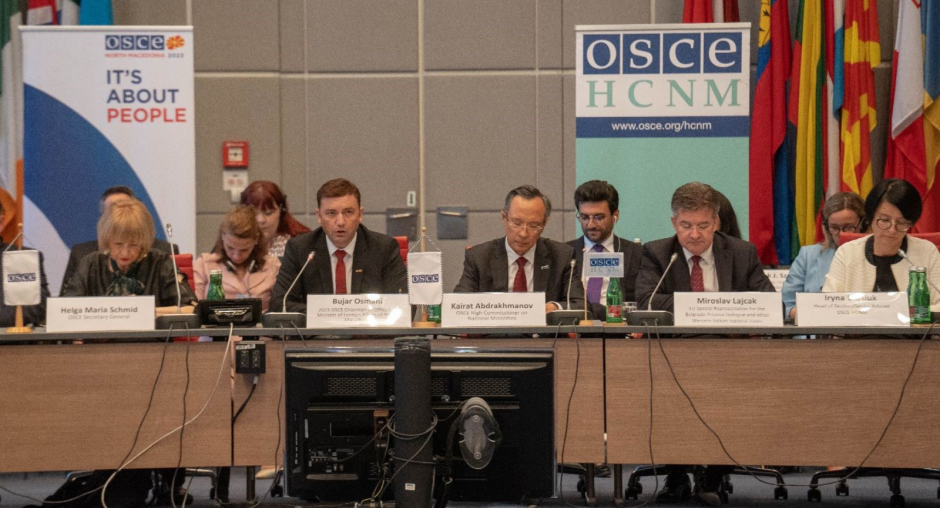Conference presents achievements, challenges and lessons learned in promoting long-term social cohesion in South-Eastern Europe

The OSCE High Commissioner on National Minorities (HCNM), in collaboration with the 2023 North Macedonia Chairpersonship, organized a high-level conference on 7 July 2023 in Vienna. The participants reflected on the achievements, challenges and lessons learned in promoting long-term social cohesion in South-Eastern Europe. The event was one of several planned this year to mark the 30th anniversary of the HCNM.
Opening the conference, High Commissioner Kairat Abdrakhmanov said, “The OSCE itself was built to address the issues related to peace and security by means of co-operation and dialogue. We need to use all of these tools effectively to ensure peace and stability in our shared space.”
Representatives from OSCE participating States, practitioners, officials from international organizations, academics and experts in the field analysed the three decades of conflict prevention work carried out by the institution of the HCNM and its role in the contemporary security architecture, as well as identifying emerging challenges related to national minorities.
OSCE Chairman-in-Office and Minister of Foreign Affairs of North Macedonia Bujar Osmani said, “The OSCE region has a long history and culture of respect for national minority rights and peaceful coexistence between different communities. My own country, North Macedonia, treasures and nurtures our unique model of functional multi-ethnic democracy, coupled with solid social cohesion across its diverse communities. We have every right to speak out with our credible voice in support of all the efforts of this organization, and its field missions and autonomous institutions, to protect the values of social cohesion and promote the rights of different minority groups.”
“Thirty years since the first High Commissioner took office, the success of the OSCE’s work and its impact on the lives of people across the region is clear. The combination of the role of the High Commissioner, along with the OSCE’s strong network of field operations, excellent partnerships with host authorities, local-level engagement, and the ability to partner with civil society and youth, provides a key tool to support social cohesion and foster positive, sustainable change for the people of South-Eastern Europe,’’ emphasized OSCE Secretary General Helga Maria Schmid.
In his keynote speech, EU Special Representative for the Belgrade-Pristina Dialogue and other Western Balkan regional issues Miroslav Lajčák said, “Preventive diplomacy, genuine dialogue, integration of diverse societies and recommitment to multilateralism remain key to peace and stability in our region.”
The half-day event also served as an opportunity to showcase collaborative efforts in long-term conflict prevention. Participants shared positive integration practices and offered critical insights and perspectives on sustainable social cohesion. The conference also highlighted the pivotal role of gender, youth and civil society as drivers of integration.
The office of the HCNM, which was established in The Hague 30 years ago, has played a crucial role in reducing tensions and fostering the integration of diverse societies in the OSCE participating States. Through quiet diplomacy, the six successive High Commissioners have engaged in dialogue with national authorities and local stakeholders, assisting them in developing policies and legislation that incorporate the interests of national minority communities.
The discussions and outcomes of this conference will contribute to the institution of the HCNM’s toolkit of approaches that can support future efforts to support inclusive and resilient societies across South-Eastern Europe and the OSCE area.
